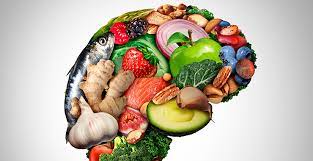Introduction
Mental health is not just shaped by our thoughts and emotions — it’s deeply connected to our physical well-being. Among the many factors that influence our mental state, nutrition plays a crucial role. The food we eat fuels our brains, affects our mood, and determines how efficiently our nervous system functions. Let’s explore how proper nutrition can significantly boost mental health and overall emotional balance.
How Nutrition Affects the Brain
The brain requires a constant supply of nutrients to function optimally. Deficiencies in essential vitamins and minerals can impact neurotransmitter production, hormone regulation, and brain cell communication.
- Omega-3 fatty acids, for example, are vital for brain cell structure and function.
- B vitamins help produce serotonin, dopamine, and other mood-regulating chemicals.
- Magnesium and zinc play essential roles in reducing anxiety and improving cognitive function.
A well-balanced diet ensures that your brain receives everything it needs to support emotional stability, focus, and resilience.
Key Nutrients That Support Mental Health
1. Omega-3 Fatty Acids
Found in fatty fish like salmon, mackerel, and sardines, Omega-3s are known to reduce symptoms of depression and anxiety. They improve brain cell communication and enhance mood regulation.
2. B Vitamins
Vitamins B6, B12, and folate are essential for energy production and neurotransmitter synthesis. A deficiency in these vitamins has been linked to fatigue, mood swings, and depression.
3. Vitamin D
Sometimes called the “sunshine vitamin,” Vitamin D influences the production of serotonin. Low levels of Vitamin D are commonly associated with seasonal affective disorder (SAD) and depression.
4. Magnesium
Magnesium helps calm the nervous system and supports better sleep and relaxation. Foods rich in magnesium include leafy greens, nuts, seeds, and whole grains.
5. Zinc
Zinc contributes to brain signaling and helps regulate the body’s stress response. Oysters, pumpkin seeds, and beans are excellent sources.
The Gut-Brain Connection
Modern research highlights a strong link between the gut and the brain, known as the gut-brain axis. The bacteria in your gut influence your mood and mental clarity by producing neurotransmitters like serotonin and dopamine.
Consuming probiotic-rich foods (like yogurt, kefir, and kimchi) and fiber-rich foods (like fruits, vegetables, and whole grains) can help maintain a healthy gut and, in turn, promote emotional well-being.
Foods That Boost Mental Health
| Food Type | Examples | Mental Health Benefits |
|---|---|---|
| Fatty Fish | Salmon, Tuna, Sardines | Enhances mood and cognitive function |
| Leafy Greens | Spinach, Kale, Broccoli | Reduces fatigue and stress |
| Whole Grains | Oats, Brown Rice, Quinoa | Supports steady energy and focus |
| Fruits | Berries, Bananas, Citrus | Protects against oxidative stress |
| Nuts & Seeds | Walnuts, Chia Seeds, Pumpkin Seeds | Promotes calmness and reduces anxiety |
Foods That Can Negatively Impact Mental Health
Certain foods can worsen mood disorders or increase anxiety when consumed excessively.
- Processed foods high in sugar and saturated fats can cause inflammation and brain fog.
- Caffeine in large amounts can increase anxiety and disrupt sleep.
- Alcohol may temporarily elevate mood but can lead to long-term mental health decline.
Limiting these can significantly improve mood stability and focus.
Practical Tips to Improve Your Diet for Better Mental Health
- Eat a colorful plate: Include a variety of fruits and vegetables for balanced nutrition.
- Stay hydrated: Even mild dehydration can impact mood and energy.
- Limit processed sugars: Replace sugary snacks with natural options like fruit or nuts.
- Plan your meals: Regular, balanced meals help maintain steady blood sugar levels.
- Incorporate fermented foods: Support gut health to strengthen mental resilience.
Conclusion
Nutrition is not a cure-all for mental health issues, but it’s a powerful foundation for emotional and psychological well-being. Eating nutrient-dense foods supports brain health, balances mood, and helps you manage stress more effectively. Pairing a healthy diet with regular exercise, quality sleep, and mindfulness can create a strong framework for long-term mental wellness.





